We are at ISME19 in Cape Town!
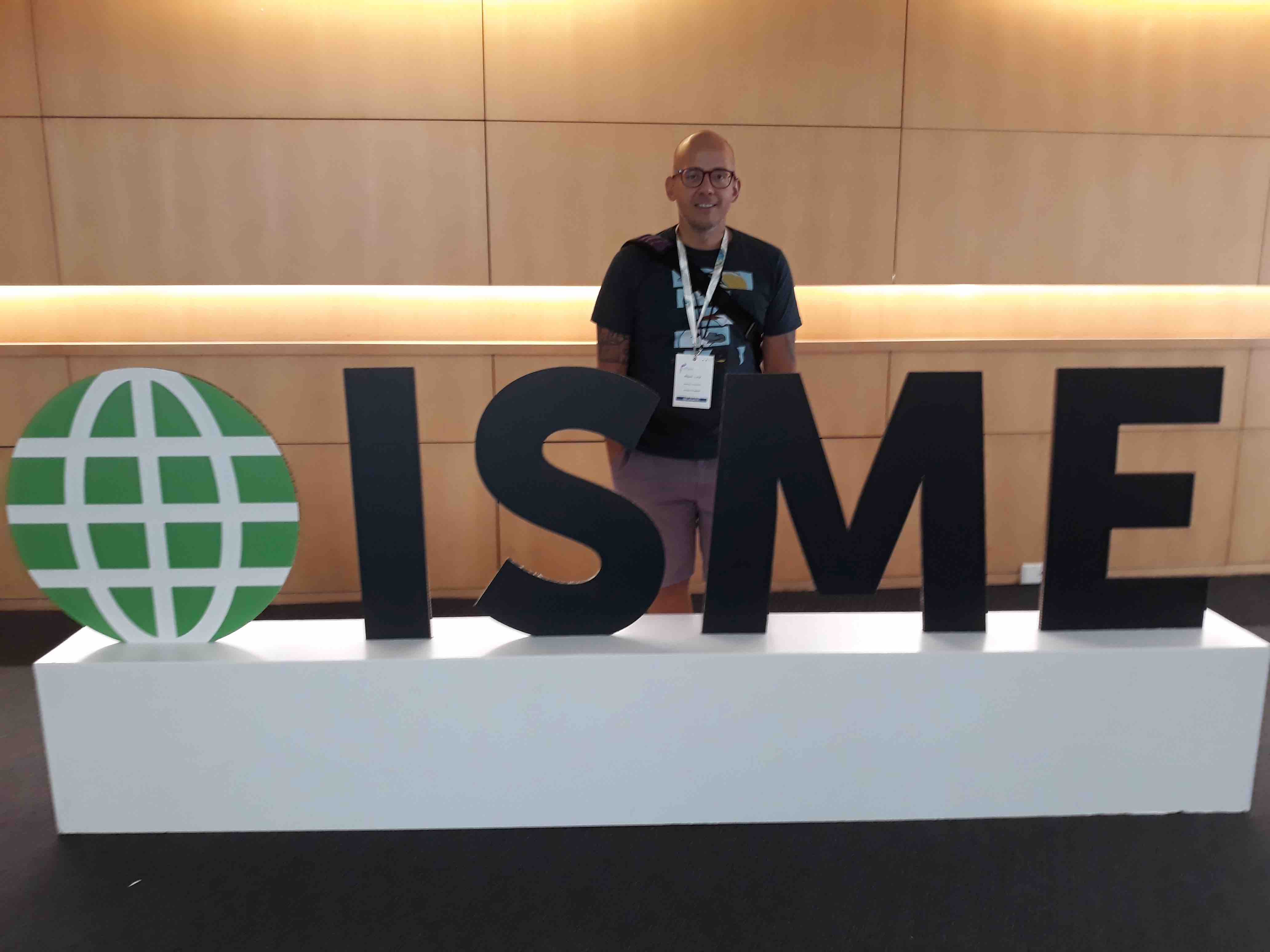
This week we are at the 19th Symposium of the International Society for Microbial Ecology - ISME in Cape Town, South Africa! Thanks to the support of the Leverhulme Trust, through my current Research Project Grant, The origin of complex symbioses were were able to share our current findings with microbial ecologists from around the world!
I presented our research on the role of mutualisms on the eco-evolutionary assembly of complex microbial communities.
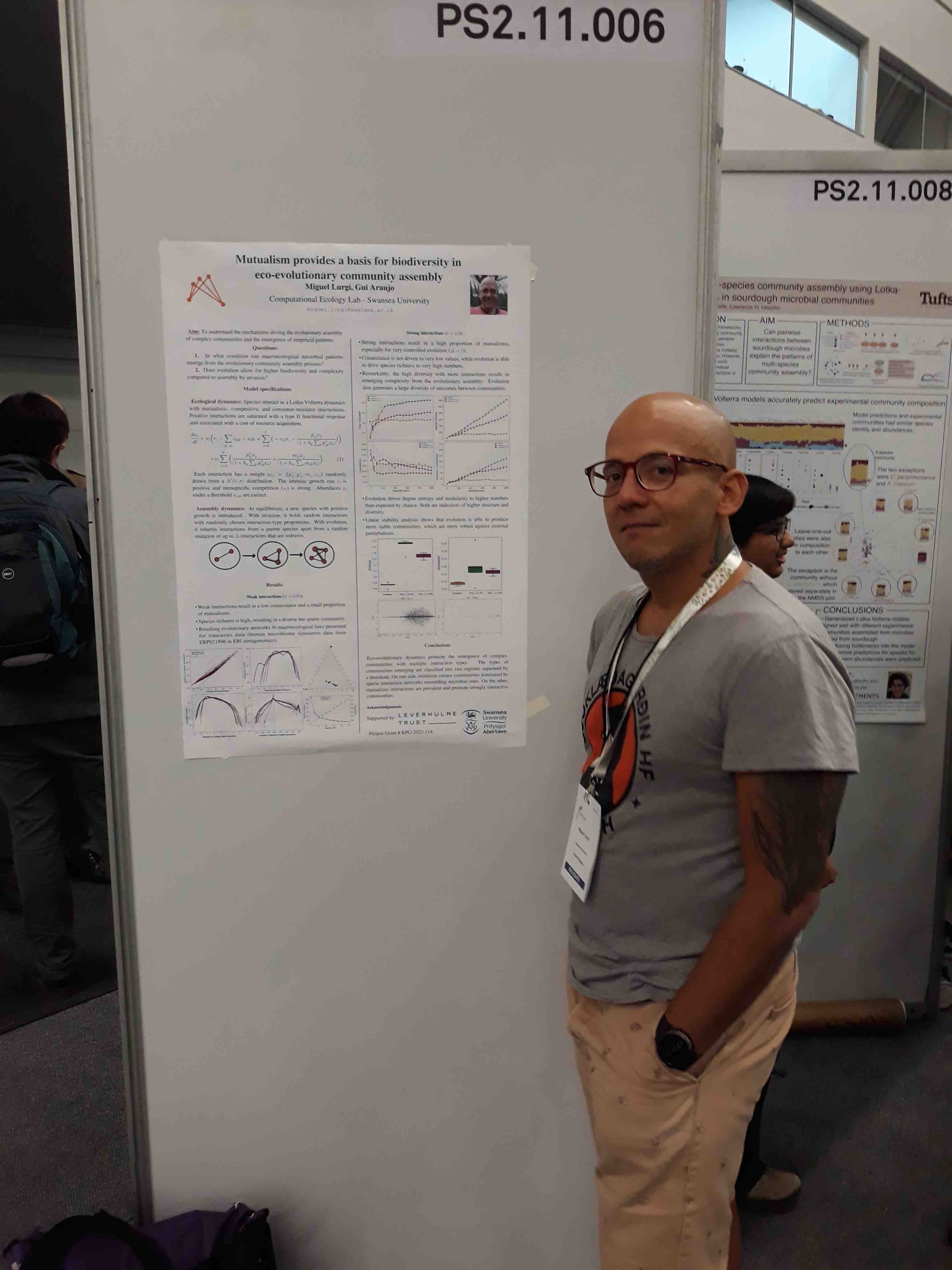
Abstract:
Understanding the diversity and structure of microbial communities is a central focus of microbial ecology. Recent research has unveiled their organisational patterns, highlighting the sheer diversity found within and across them. Identifying the mechanisms behind these patterns is fundamental to develop an understanding of microbial community assembly. Experimental and empirical evidence suggests that both ecological and evolutionary mechanisms influence microbial community assembly. Especially considering the coupling of timescales between ecological and evolutionary processes in that is unique to microbes. However, a comprehensive understanding of how ecology and evolution come together to create complex microbial assemblages is still in its infancy.
In this work, we aim at filling this gap by developing an eco-evolutionary model of microbial interaction networks. We account for the interplay between ecology and evolution by considering interaction-driven population dynamics and evolution through speciation and inheritance of interactions. The model is capable of generating complex communities with many species and interactions typical of microbial assemblages. Moreover, by modulating the ratio of interaction types we can obtain a variety of community structures, thus generating a diversity of community types. We found that mutualistic interactions, by making communities more stable, allow communities to accommodate a larger number of interactions overall. We compare our findings to a purely ecological model and show that ecological assembly is not enough to generate complexity patterns such as those attained by evolution.
Our results are relevant for generating predictions on the effects of perturbations on natural microbiome and developing strategies for engineering synthetic microbial communities.
This diversity is manifested at several scales. Not only are microbial communities highly diverse, but they also display different structures that varies across environments, biomes, or host types.
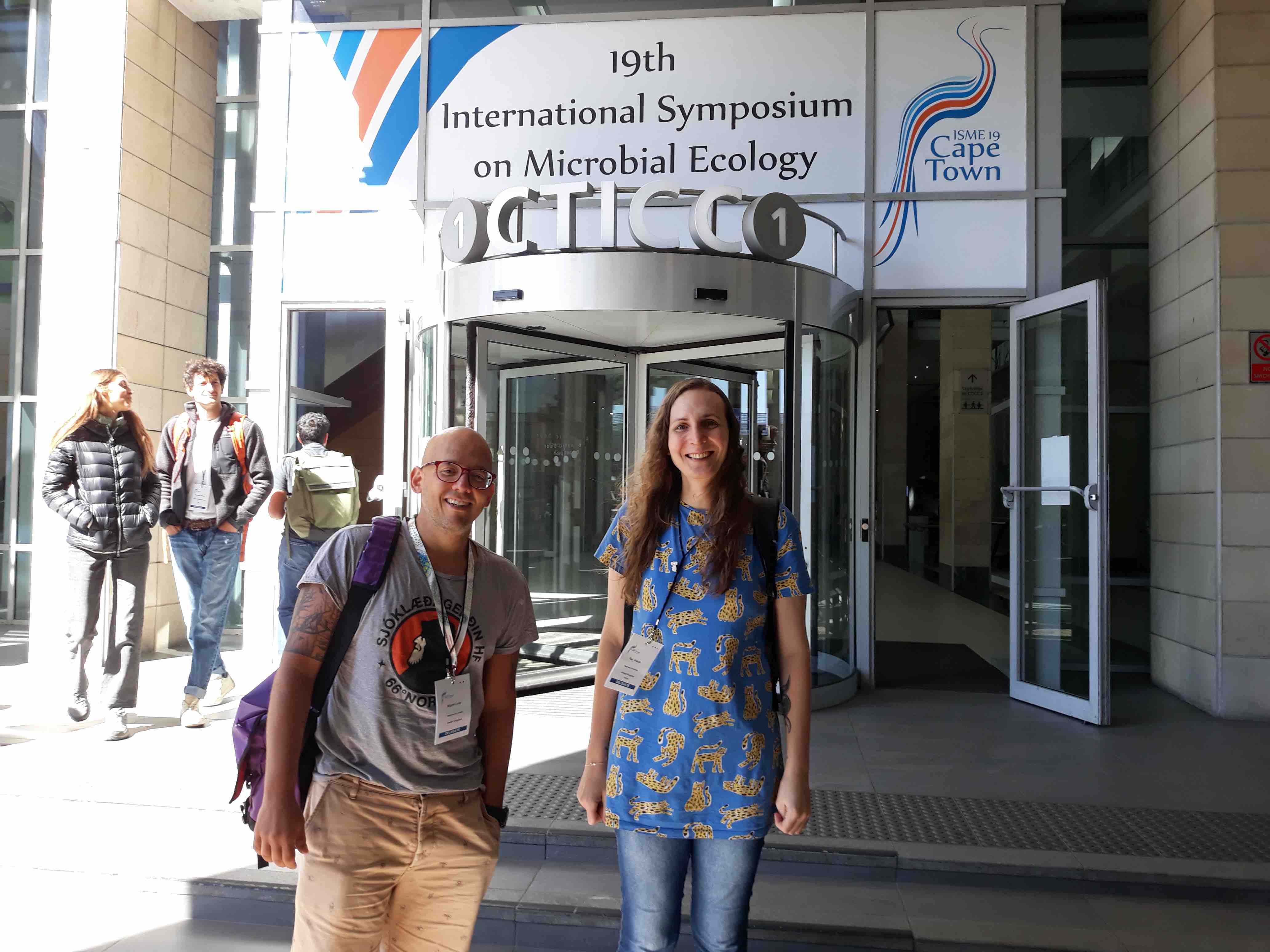
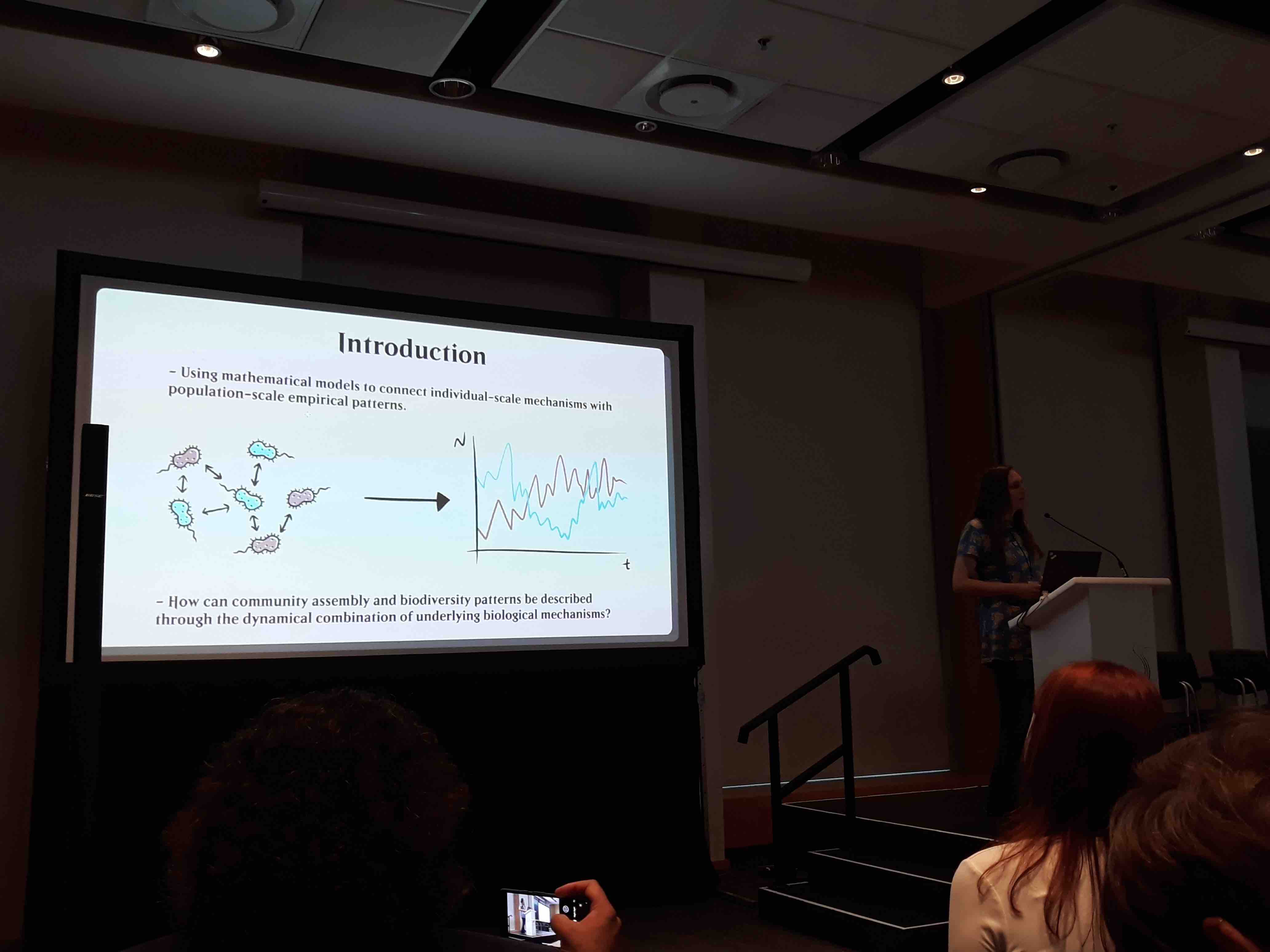
Gui expanded on this work and presented our current joint work on a spatial meta-community framework for complex microbiomes.
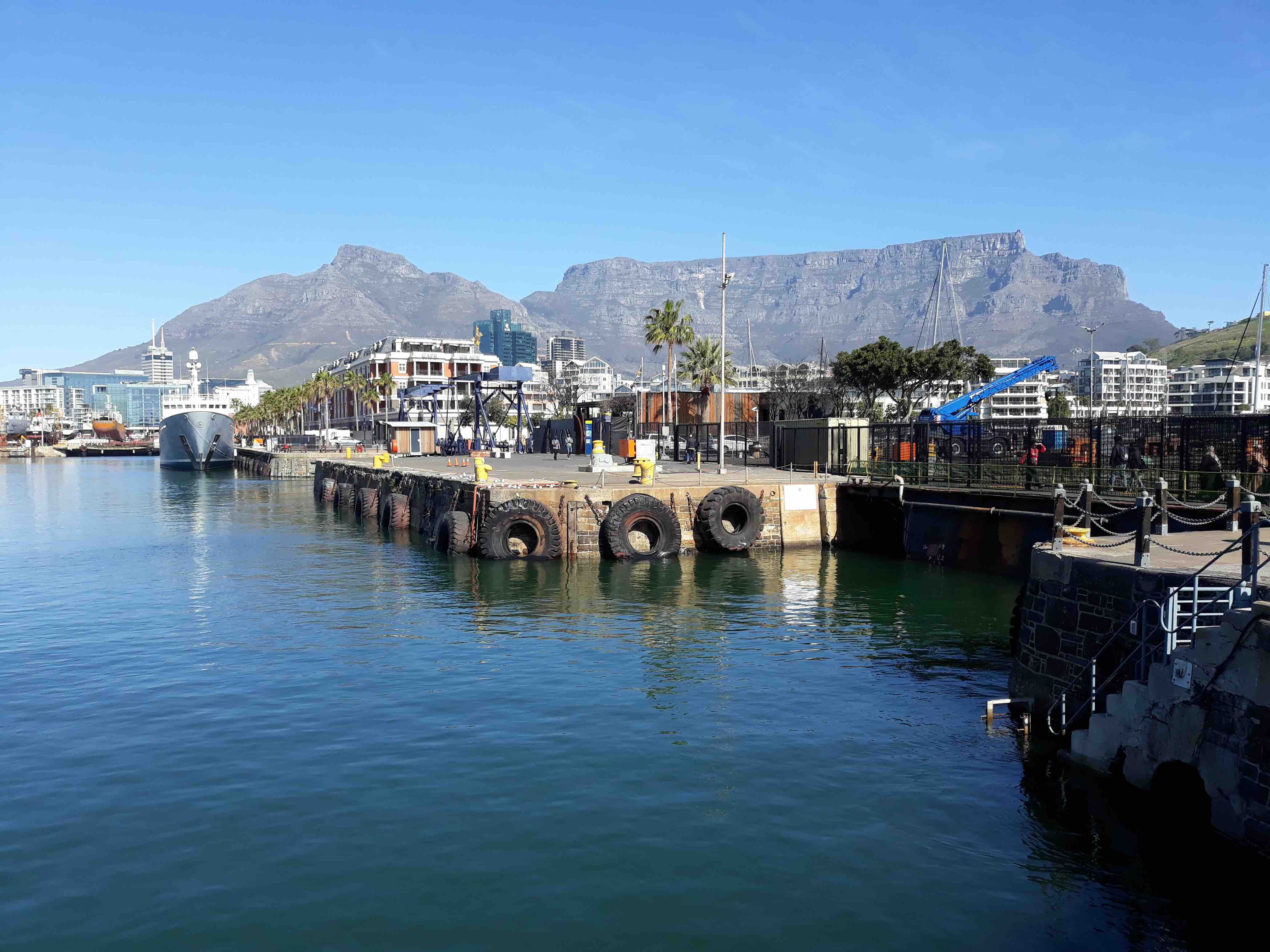
The opportunity to see some exciting new research in microbial ecology was fascinating, with many interesting talks and poster presentations. Plus the chance to catch up with old friends from Australia and newly made friendships!
Thanks to Heidi, Nicole, Bettina, Paul and Mike for many nice times and interesting science discussions! It was great to see many of you again!